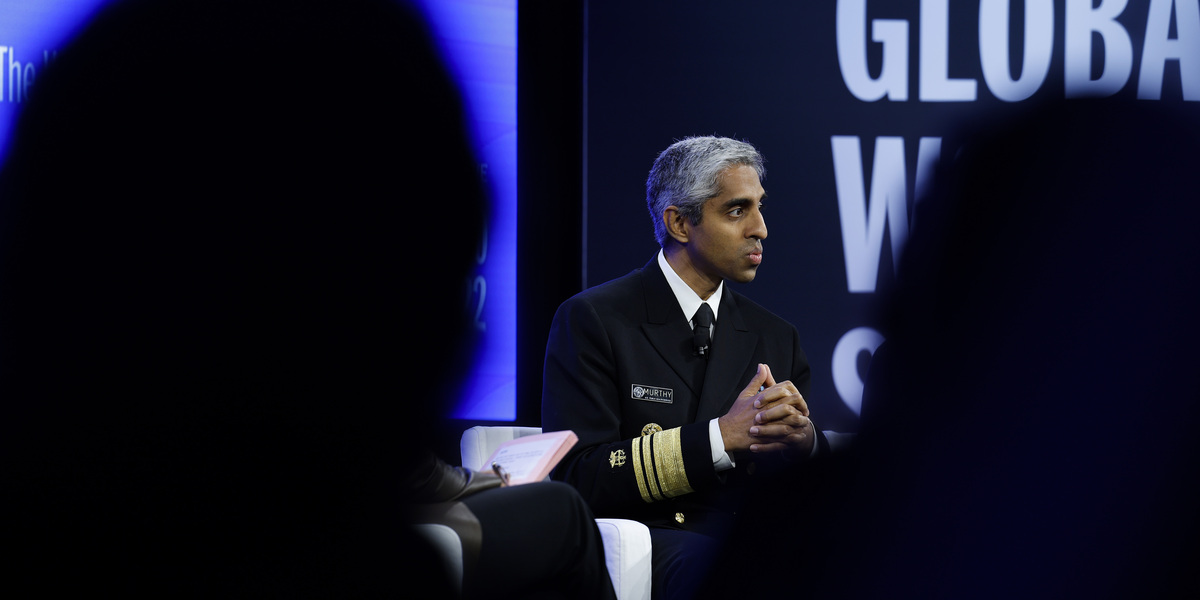It is that of the mental health of the youngest of whom social networks are “an important factor”, says the top US official who deals with public health
Tuesday Vivek Murthy, who fills the role of Surgeon general of the United States, or the top federal official to deal with public health issues, has issued a warning on the risks that young people run by spending too much time on social networks. It was a pretty stark choice: in the past, these communications have covered the dangers posed by cigarettes, AIDS, the portrayal of violence on television and in video games, obesity, firearms, and loneliness.
In the most recent notice, 19 pages long, Murthy explains that he has decided to warn the public on the subject despite the fact that at the moment the studies on the effects of social networks on the health of adolescents have not reached definitive conclusions on their actual danger.
Our children and teenagers don’t have the luxury of waiting years before they know the full extent of social media’s impact. Their infancy and developmental period is happening now. (…) We are in the midst of a national crisis regarding the mental health of young people, and I fear that social media is a major factor in this crisis, which needs to be addressed urgently.
The concern expressed by Murthy is that spending several hours online each day worsens anxiety, depression and social isolation, as well as potentially exposing young people to content that instigates suicide, eating disorders and other harmful behaviors. Nonetheless, in her opinion it is admitted that the issue is very complex, and that social networks can also be positive for young people.
The influence of social media on youth mental health is shaped by many complex factors, including the amount of time children and adolescents invest on platforms, the type of content they consume and are exposed to, and the activities and interactions social media offers. average, and the possibility that they interfere with essential health activities such as sleep and physical activity. Importantly, different children and adolescents are impacted by social media in different ways, based on their individual strengths and vulnerabilities, as well as cultural, historical, and socio-economic factors. There is broad consensus in the scientific community that social media has the potential to both do good and harm to children and adolescents.
– Read also: Does internet addiction exist?
The report includes practical recommendations to help families guide their children’s use of social media: for example, not using the phone during family mealtimes to promote conversations and building social bonds, but also the construction of a “family media plan” that clearly establishes the expectations with respect to the use of the Internet by the whole family, in which to include notions of online privacy.
In addition, Murthy urged the companies that manage the platforms, asking them to do more to impose age limits on their users and create default settings for minors, with higher standards of safety and privacy. The Surgeon general he then asked the government to create legal standards on the matter: the notice, in fact, has no legal or political value, but has the sole purpose of drawing attention to “an urgent public health problem” and formulating recommendations on how deal with it.
The issue of online child protection is almost as old as the Internet itself, but in recent years it has been particularly felt at a political and social level: within a context in which children and young people report a particularly high level of psychological discomfort, social networks are often singled out as the main cause of the phenomenon. In fact, a series of delicate factors come together in the concern for the safety of minors online, starting from the suspicion of adults towards digital spaces that they do not frequent and do not understand, but in which their children spend a lot of time.
It is however a debated issue. In 2022 Professor Jacqueline Ryan Vickery, author of Worried About the Wrong Things: Youth, Risk, & Opportunity in the Digital World, had argued that «it is easier, politically, to talk about children’s exposure to violence, predators, sexual materials, self-harm, etc. online, relegating these threats to the Internet into public discourse, rather than having more holistic discussions broad on the spaces and places where children are most likely to be harmed the most. But data shows that adults they trust in places they trust are more likely to harm children than strangers or peers, both online and offline.
***
Where to ask for help
If you are in an emergency situation, call 112. If you or someone you know is having suicidal thoughts, you can call the Helpline at 02 2327 2327 or via the internet from hereevery day from 10 to 24.
You can also call the association Samaritans to the number 06 77208977every day from 13 to 22.
Continue on the Post
